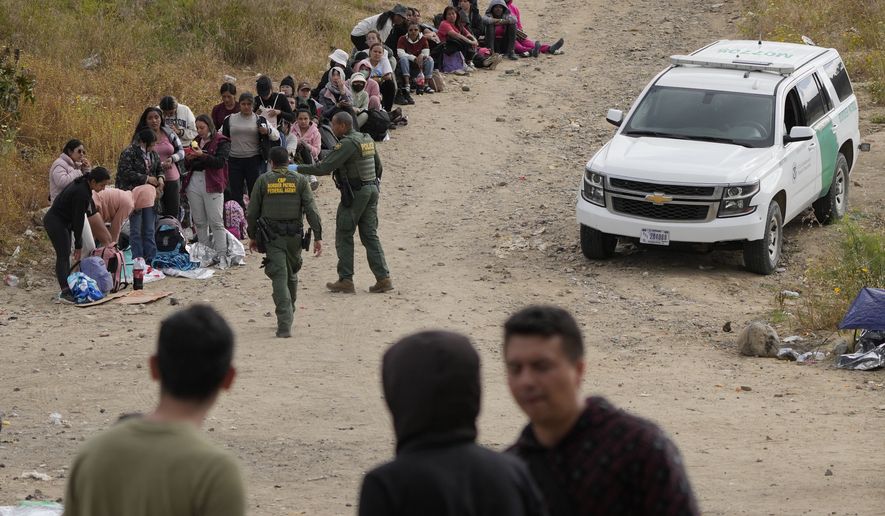A federal judge ruled late Thursday that Homeland Security cannot use its “parole” powers to catch and release illegal immigrants in the current border surge, upending the chief tool the administration was hoping to use to deal with the expected wave of people.
Judge T. Kent Wetherell II said the problems at the border are President Biden’s “own making” and suggested the administration has the power to change that without needing to resort to a free-for-all parole policy.
Judge Wetherell’s ruling was a win for Florida Attorney General Ashley Moody, who had gone to court earlier in the day to ask for a temporary restraining order on the parole policy.
“We took swift action to protect the American people from [President Biden’s] unlawful plan to release thousands of illegal immigrants when Title 42 lifts,” Ms. Moody said in a statement after the ruling.
Judge Wetherell questioned how much of an impact his ruling will have on the ground, saying that with or without parole, the government will be catching and releasing migrants with little assurance they can be induced to show up for later immigration court hearings or deportations.
He wrote that “in both instances, aliens are being released into the country on an expedited basis without being placed in removal proceedings and with little to no vetting and no monitoring.”
Parole is a Homeland Security power to admit people into the country even though they lack a valid visa or other permit that would let them in.
Under the law, it is supposed to be used on a case-by-case basis and only in exceptional circumstances of urgent humanitarian needs or significant benefit to the public to have the person here.
Under Mr. Biden, however, it has become a major tool to allow people to enter — from Afghans and Ukrainians fleeing their homes to a large swath of illegal immigrants who’ve shown up at the border. Some 1.5 million migrants were paroled over the 18 months from Oct. 1, 2021, through March 31, 2023.
Border Patrol Chief Raul Ortiz, in a memo Wednesday, had said parole would be used to speed processing of the new wave of migrants cresting right now with the end of Title 42, the pandemic border-expulsion power.
Chief Ortiz said without parole, Border Patrol detention facilities would become overcrowded and unsanitary.
His chief deputy, Matthew Hudak, told Judge Wetherell on Thursday that without parole agents will have to spend more time processing and detaining migrants, and less time out in the field enforcing the law.
He warned that child traffickers, convicted criminals and even terrorists could sneak across while agents were distracted.
Judge Wetherell acknowledged that, but said the same pressures will exist with or without parole.
Besides, he said, “this problem is largely one of Defendants’ own making.”
Deputy Chief Hudak said the Border Patrol is catching 10,000 migrants a day right now, and said that could reach 14,000 as soon as Title 42 does disappear.
He said the Border Patrol had 27,000 migrants in custody earlier this week, and that number is growing by nearly 1,000 people a day. He predicted it will be at 45,000 by the end of this month without parole powers.
Judge Wetherell’s decision piggybacks on a ruling in March when he shot down an earlier version of parole.
He said the administration was using it as a stopgap to help streamline its operations, but the law says it’s intended to assist migrants in rare circumstances where they need to be admitted but lack a visa or other permit to be allowed in.
• Stephen Dinan can be reached at sdinan@washingtontimes.com.




Please read our comment policy before commenting.